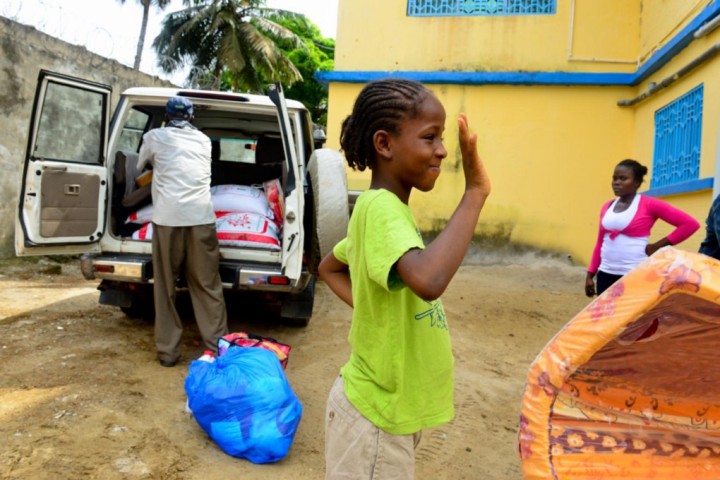‘When last we met Mercy, she was arriving in her foster home, the child of a woman who had died of Ebola infection. See how Mercy’s getting on, in school for the first time, a child embraced by a family joined by love, if not blood.'(UNICEF)*
After Mercy Kennady, 9, lost her mother to Ebola, she made international news when she was found crying, scared and alone, wandering the streets of Liberia. Her journey has taken her from being orphaned, facing stigma and undergoing quarantine to starting anew in the loving home of a foster family.
In November 2014, Mercy waved farewell as she left a UNICEF-supported interim care centre in Monrovia. Children exposed to Ebola stay at the centre for the duration of the virus’s 21-day maximum incubation period, receiving support while waiting to make sure they have not contracted the disease.
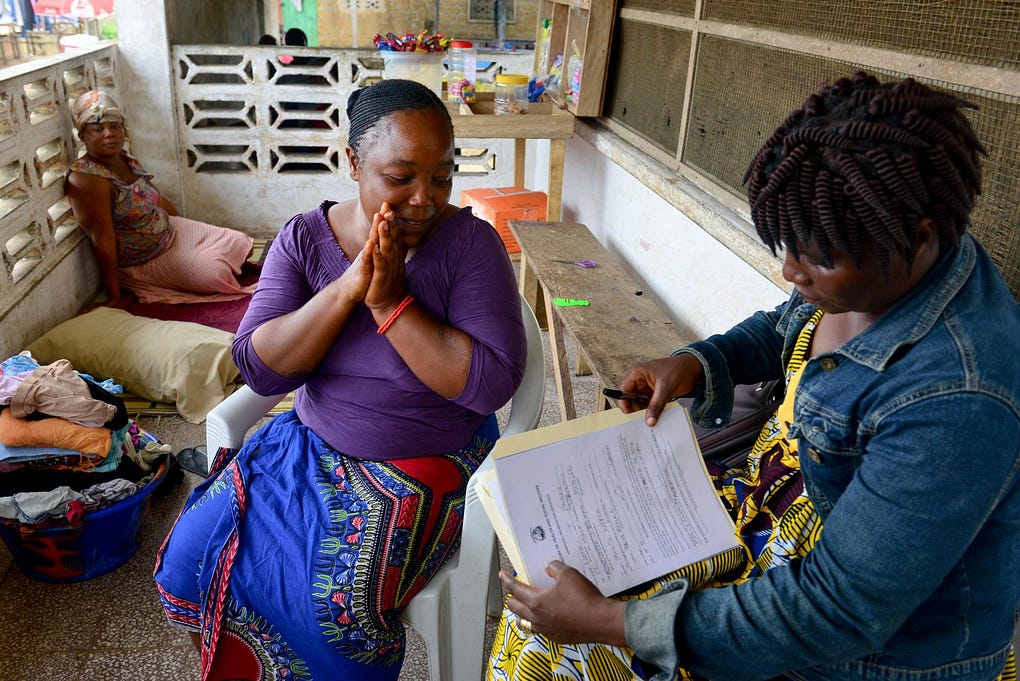
© UNICEF/NYHQ2014–3143/Nesbitt
.
Because Mercy’s father passed away long before the Ebola outbreak, the death of her mother rendered her parentless. (Centre) Martu Weefor, a family friend, welcomed Mercy and her brother Harris Wreh, 17, into her home as foster children after the two left the interim care centre.
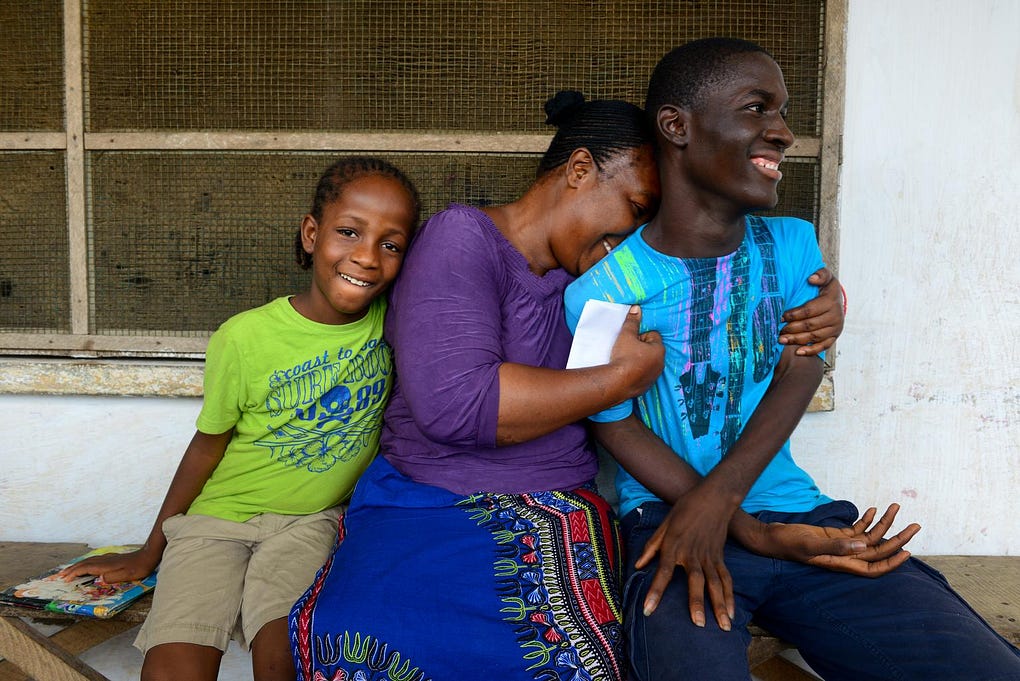
© UNICEF/NYHQ2014–3147/Nesbitt
Ms. Weefor celebrated with Mercy and Harris after the fostering paperwork was signed. Because she lives very close to the home the children shared with their mother, Mercy has been able to remain within her own community in Paynesville, a suburb of the capital. Harris is away attending school.
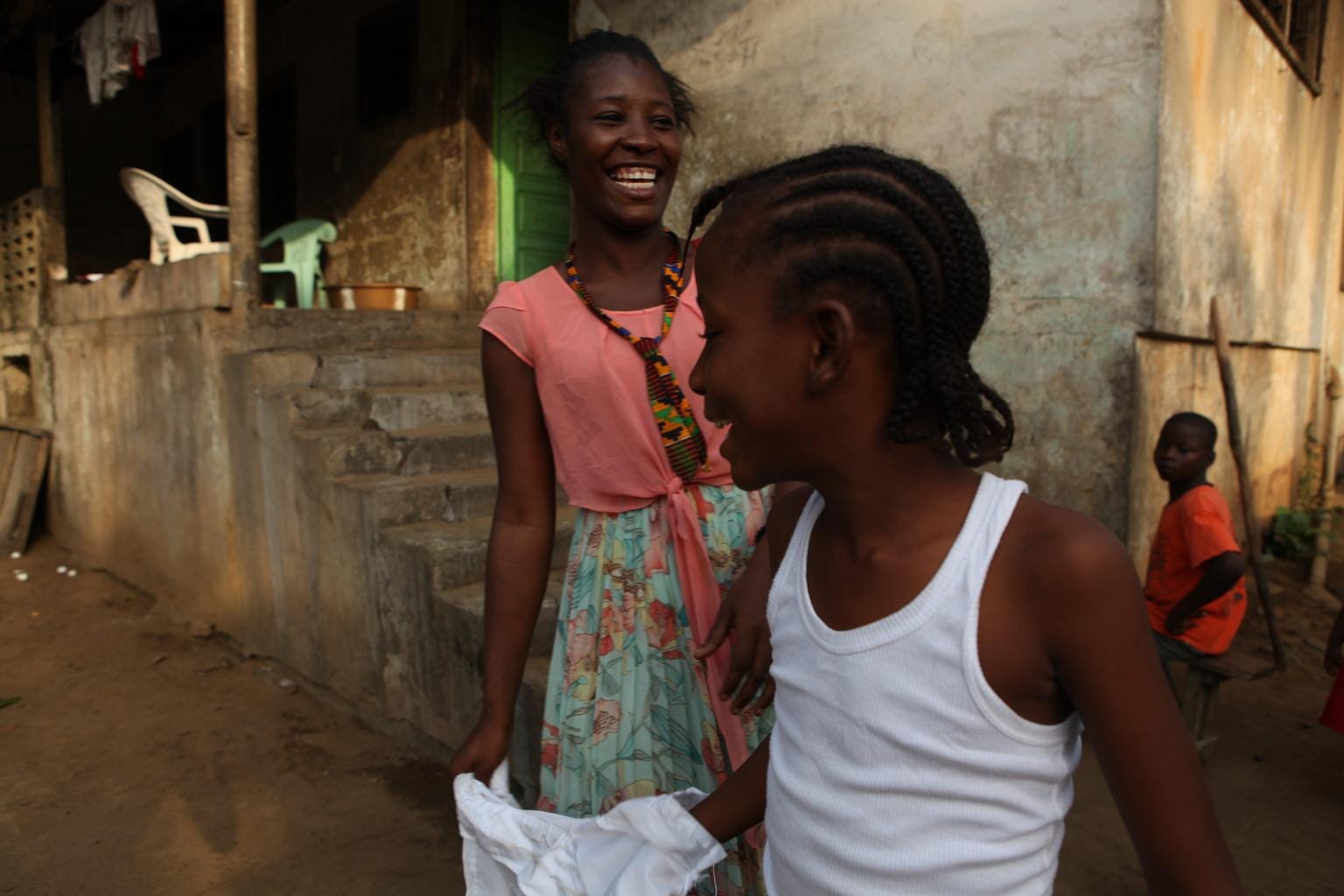
© UNICEF/NYHQ2015–0337/Grile
(Background) Patience has enjoyed welcoming Mercy as her foster sister and helps take care of her.
.
“She still has her child memories at the back of her. She still has friends around. The only thing is just a person who is missing,” says Patience, whom Mercy has come to call “small mother.”
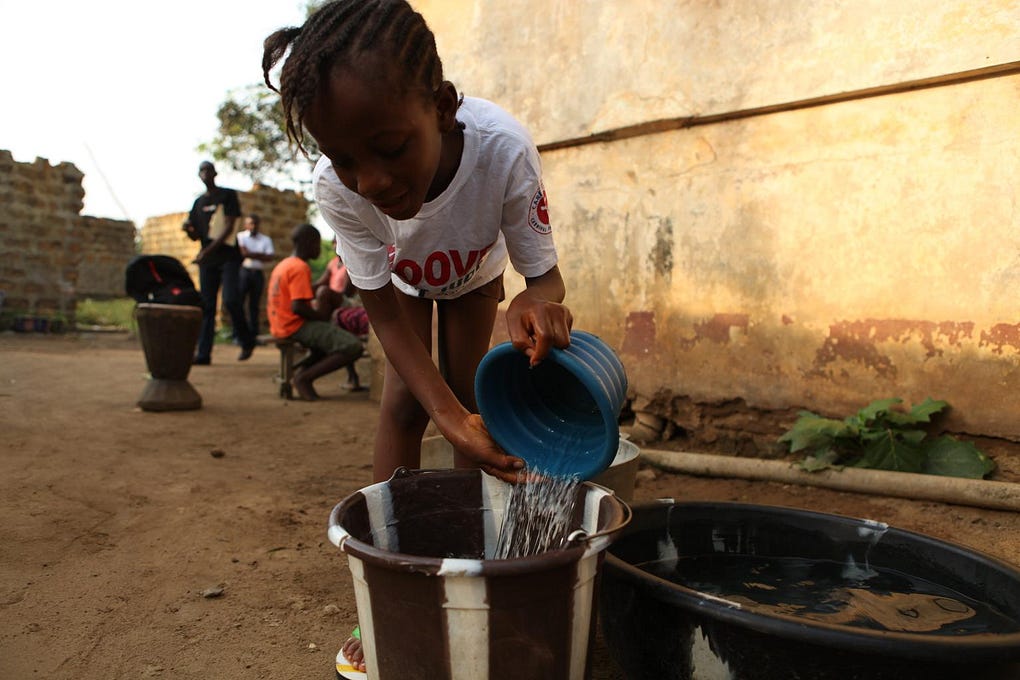
© UNICEF/NYHQ2015–0339/Grile
.
With the support and love of her foster family, Mercy is slowly regaining a sense of normalcy after the great loss and hardships she endured. She pitches in with the household chores, filling a pail with water.
By the time Liberia’s schools reopened in February 2015, many children had been out of school for months because of the Ebola crisis. For Mercy, it was her first chance ever to go to school.
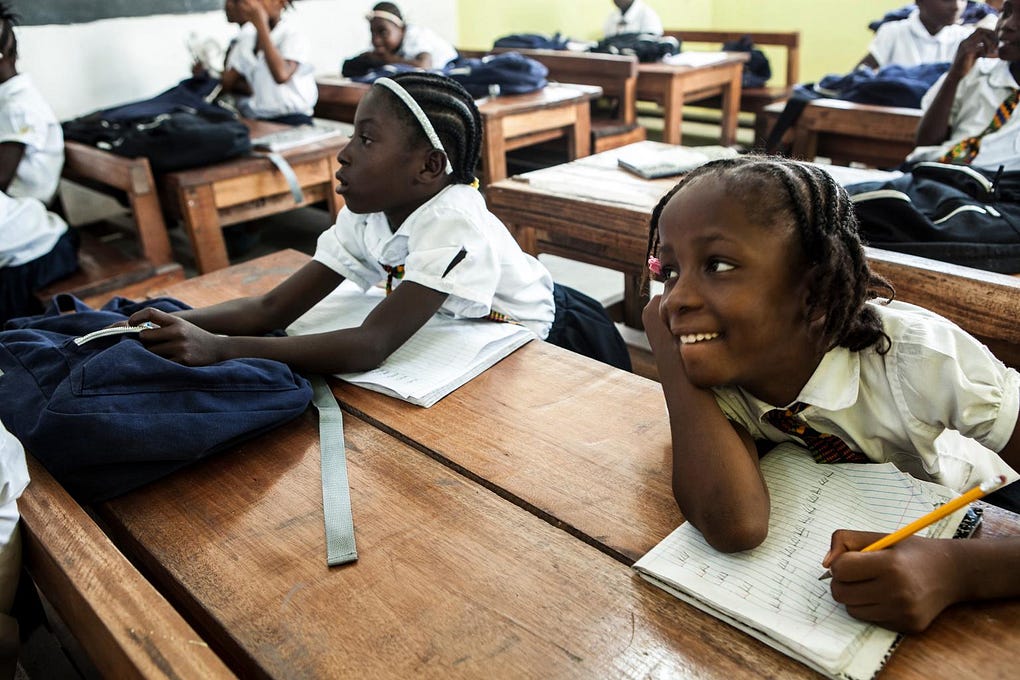
© UNICEF/NYHQ2015–0348/Grile
.
Because Mercy’s mother was the family’s sole provider, she never had the means to pay for Mercy’s education. At the school where Mercy is now enrolled, students attend for free and also receive health care, and two meals each day.
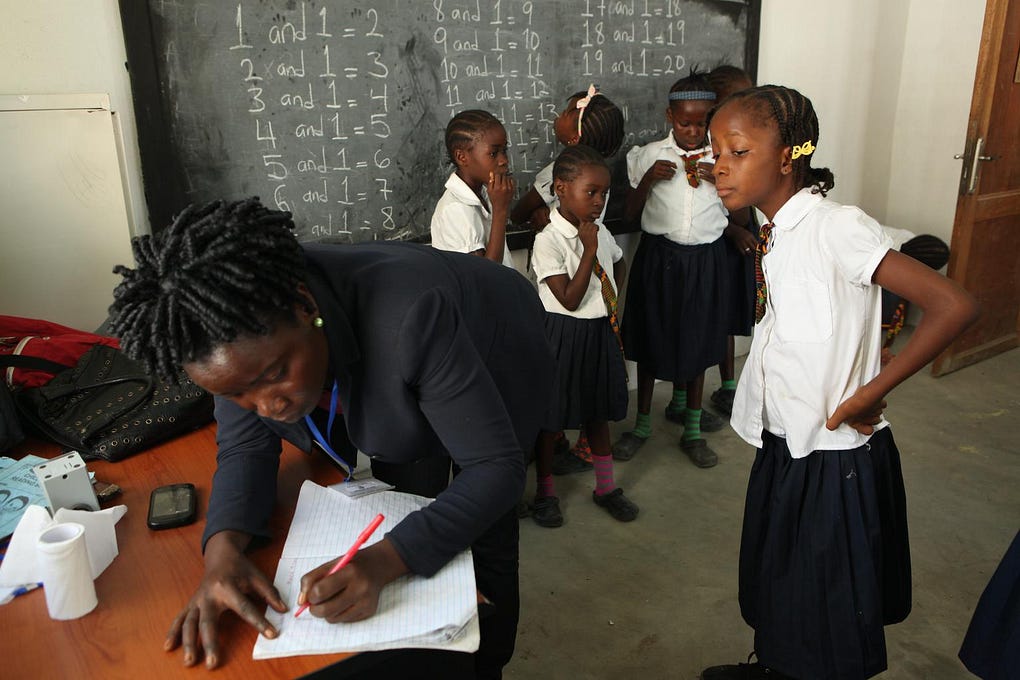
© UNICEF/NYHQ2015–0349/Grile
.
Despite the educational opportunities now before her, learning gaps left by years of not attending school are proving challenging to overcome. Two of Mercy’s teachers have been helping her improve her writing skills and practise reciting words.
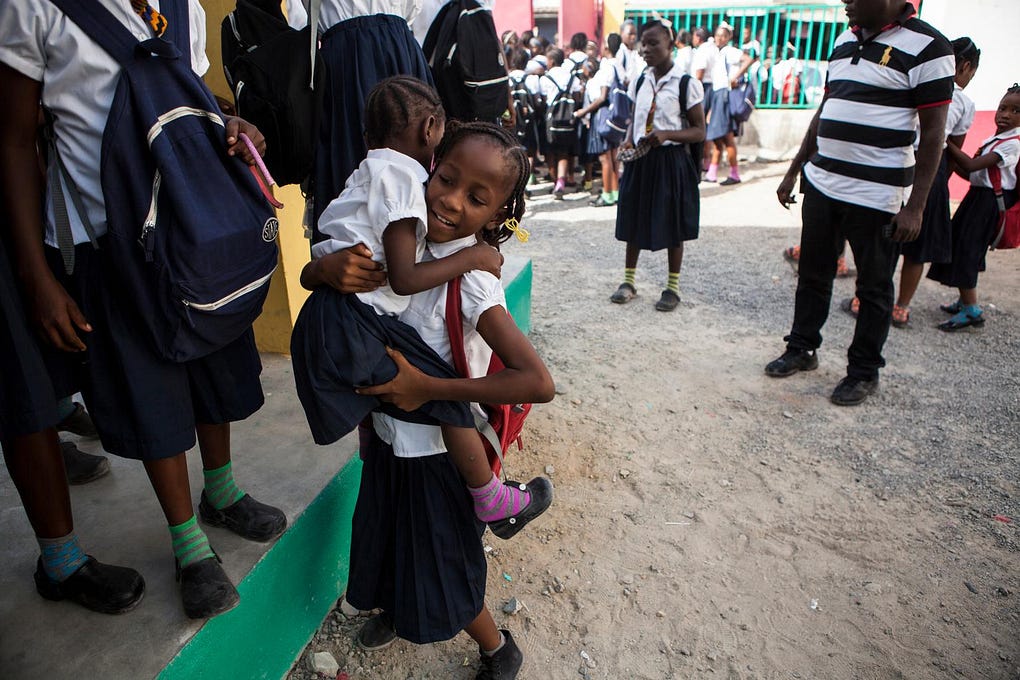
© UNICEF/NYHQ2015–0351/Grile
Mercy has formed friendships with many of her schoolmates and enjoys participating in fun activities with them — like jumping rope. She is also frequently seen helping younger children and looking after them.
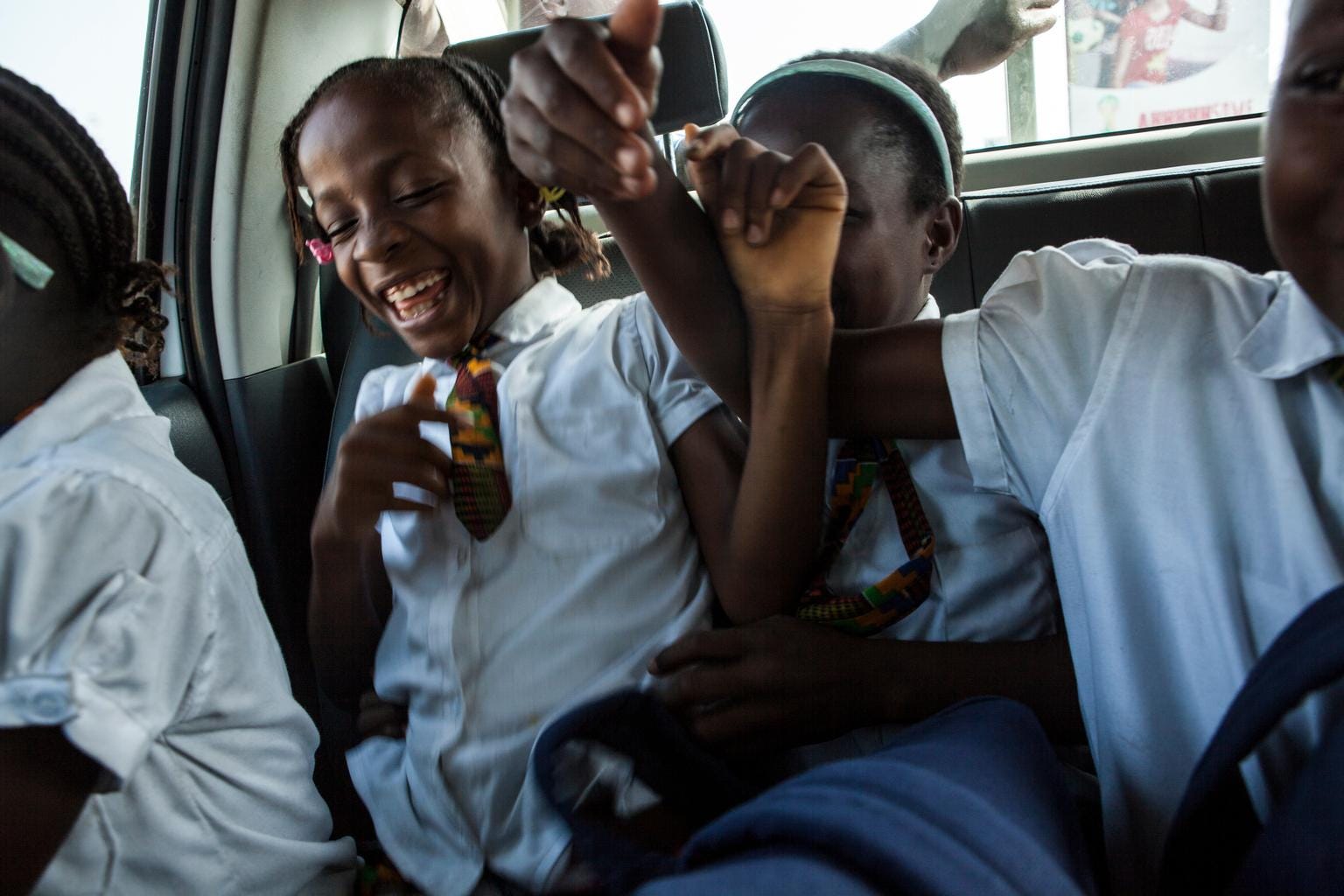
© UNICEF/NYHQ2015–0352/Grile
“She loves being around her friends,” one of Mercy’s teachers has said. “Everyone opens their arms to her. She never acts like anything bad happened to her in the past. She’s always smiling.”
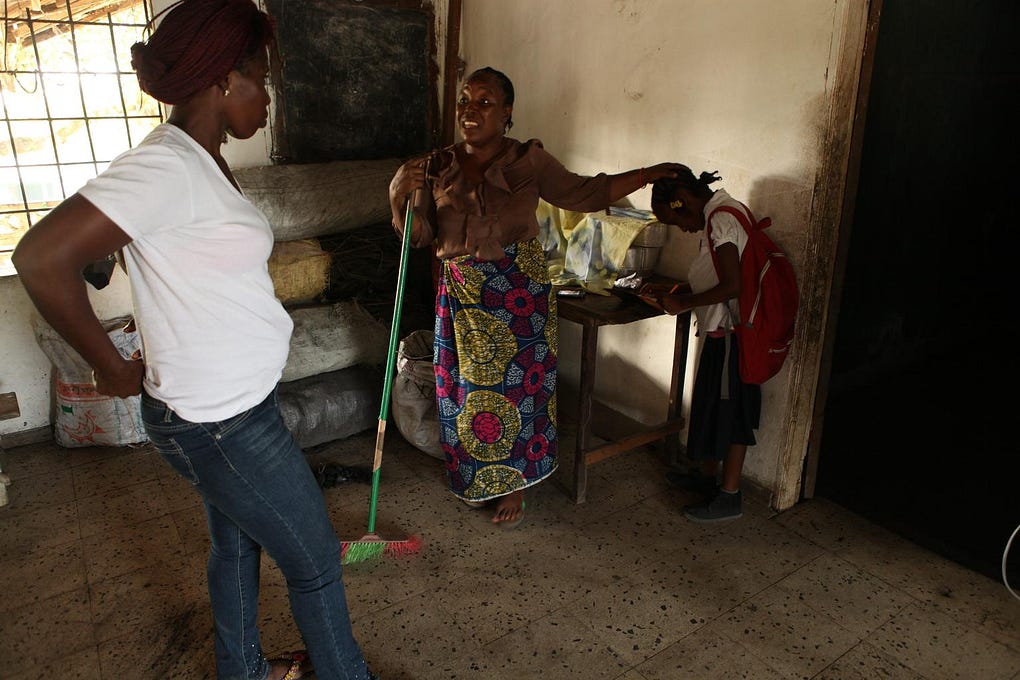
© UNICEF/NYHQ2015–0354/Grile
After a day of learning, Mercy arrives home with Fatu Johnson, the cook at her school, who has been asked to chat with Ms. Weefor about some of the challenges Mercy has been facing at school — such as having a hard time with writing, and completing assignments.

© UNICEF/NYHQ2015–0355/Grile
Ms. Weefor asked Ms. Johnson for the teachers’ patience as Mercy continues to adjust to attending school for the first time — and then helped Mercy change out of her school uniform. Her schoolwork has since been improving.

© UNICEF/NYHQ2015–0357/Grile
More than 16,000 children in the Ebola-affected countries of Guinea, Liberia and Sierra Leone have lost one or both parents or their primary caregiver to the disease. The vast majority — like Mercy — are now being cared for by their communities, including extended family members.
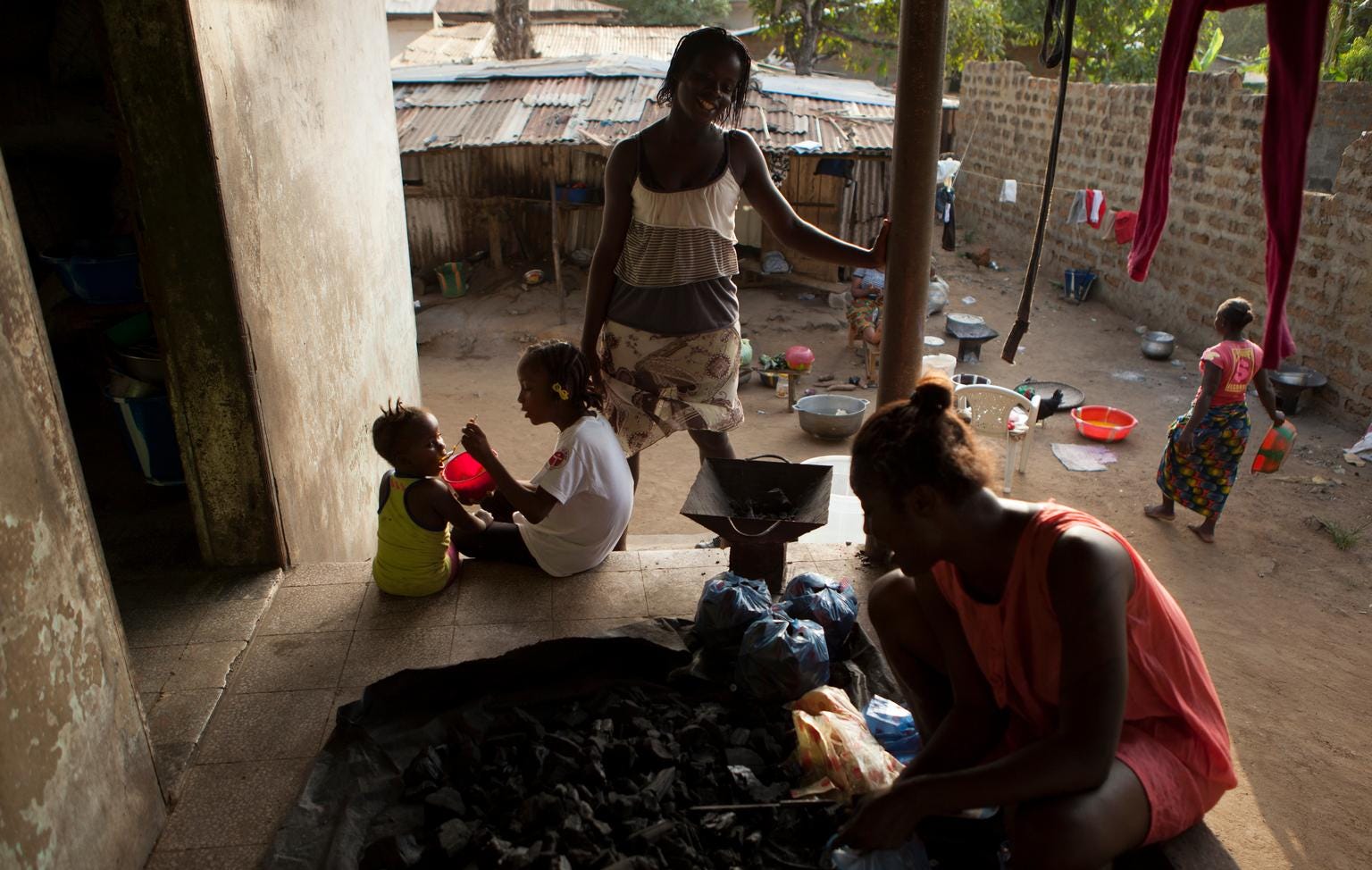
© UNICEF/NYHQ2015–0356/Grile
A welcoming like that Mercy has received from her foster family and community is crucial for emotional recovery. Efforts to dispel myths about Ebola’s transmission — and to promote acceptance of people affected by the disease as they return to daily life — have helped reduced stigma and isolation.
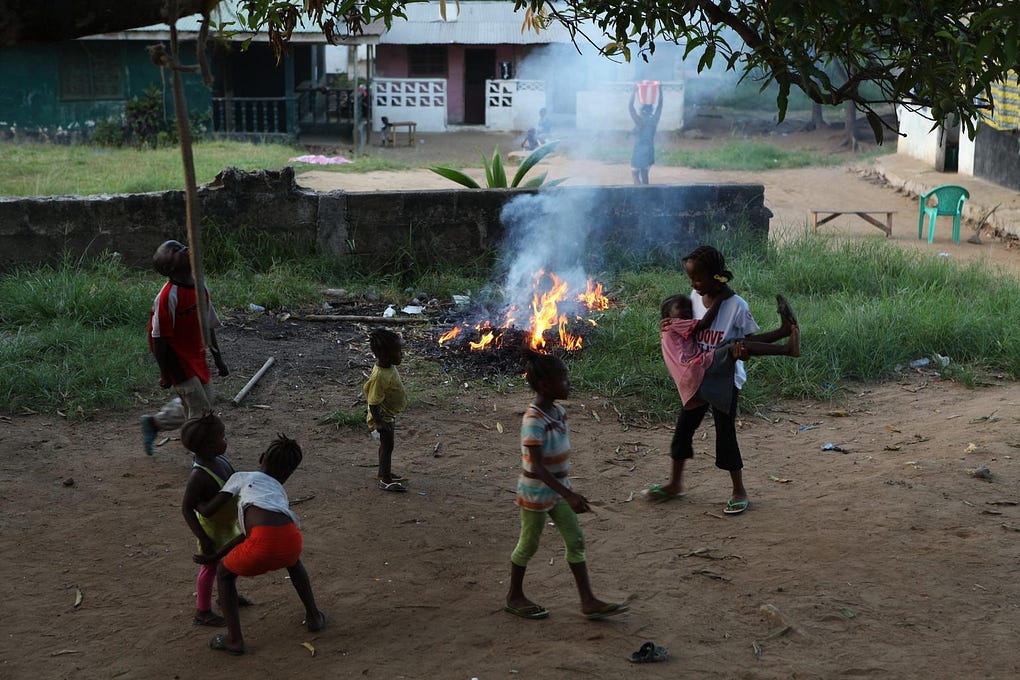
© UNICEF/NYHQ2015–0358/Grile
As Mercy continues to focus on healing and on building a new life, the race to end the disease that changed her life forever is still not over.
“[Ebola] is a bad thing as it’s killing people,” says Mercy. “It killed my mom.”
Learn more about UNICEF’s Ebola response.
*Source: This Ebola story was published by UNICEF. Go to Original.
2015 Human Wrongs Watch


